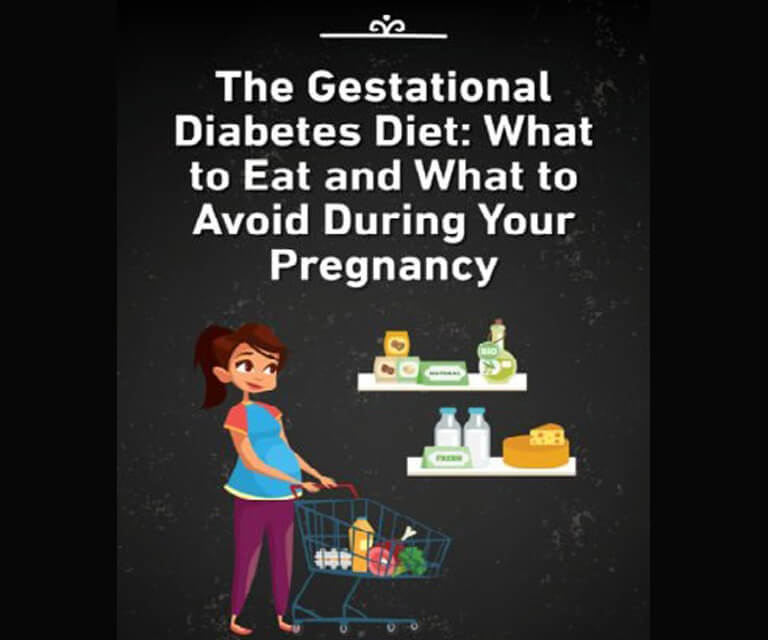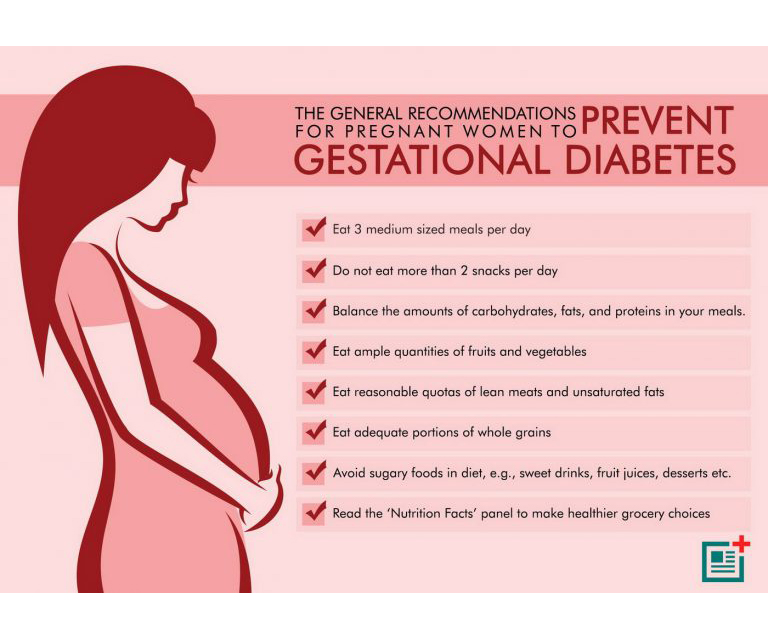Your Doctor told you that you have gestational diabetes. This doesn’t mean that you did anything wrong. And it doesn’t mean that your baby will be born with diabetes. But it does mean that you need to take special care of yourself, so you and your baby stay healthy.
What Is Gestational Diabetes?
Gestational diabetes is a special kind of diabetes that happens only during pregnancy (gestation). Changes that occur in your body while you’re pregnant cause your blood sugar to be too high.
Gestational diabetes is more likely in women who:
• Are overweight.
• Are older than 25 years of age.
• Have had gestational diabetes in the past.
• Have a family history of diabetes.
• Have had a baby who weighed more than 9 pounds at birth.
Your body turns the food you eat into blood sugar. This sugar goes into your blood-stream. Your body then releases a substance called insulin to help your body use blood sugar. Blood sugar is used as energy for both you and your baby.Blood sugar goes to your baby through the umbilical cord from the placenta (special tissue that connects the mother and baby). Your baby uses this sugar to grow. But the placenta also makes hormones that can change the way insulin works in your body.
Too Much Blood Sugar Affects You and Your Baby If your body can’t use insulin properly, your blood sugar level gets too high. Then too much blood sugar goes to your baby. This can cause problems for both you and your baby.
Risks to You
If you don’t control your blood sugar, you are more likely to have these problems:
• You may have high blood pressure. High blood pressure during pregnancy can lead to a condition called preeclampsia. This is a danger to your health. It could mean that your baby will have to be delivered early.
• You may have more infections. High blood sugar makes you more likely to have bladder, kidney, and vaginal infections.
• You may be uncomfortable or short of breath. High blood sugar can cause too much fluid around the baby. This is called polyhydramnios. Your abdomen gets big and pushes on your lungs.
• Your delivery may be harder, and recovery may take longer. If your blood sugar stays too high, your baby can grow too large. A large baby might cause injury to you during birth. In some cases, that might cause the baby to be delivered by cesarean section (C-section). This means making a cut (incision) in your abdomen and uterus. Needing a C-section is one of the most common risks of gestational diabetes.
Risks to Your Baby
If you don’t control your blood sugar, your baby is more likely to have these problems:
• Your baby can grow too large. This is called macrosomia. This can make it hard for your baby to come through your vagina without injuring the baby’s arms and shoulders.
• Your baby’s organs may not be fully developed before birth. If your baby’s lungs are affected, he or she may have trouble breathing (respiratory distress syndrome). If your baby’s liver is affected, he or she may have yellowing of the skin and eyes (jaundice) after birth.
• Your baby’s blood sugar may be low after birth. If your blood sugar is too high, your baby makes extra insulin. The baby still makes extra insulin right after birth. Then he or she may have to be treated for low blood sugar.
• Your baby could be stillborn. This is not very common, but your baby could die before birth if your blood sugar stays high for too long.
Controlling Blood Sugar Helps Prevent Problems You can lower your blood sugar by eating right and exercising. You might also need to take insulin or oral medications. If you keep your blood sugar in control, the risks to you and your baby are the same as for a normal pregnancy.
Eating Right
Eating the right foods is the main way to control your blood sugar. You need to eat a variety of foods from each food group every day. To help you with changes that may be needed in your diet, you will likely work with a registered dietitian (an expert on food and nutrition). The dietitian can help you understand how specific foods affect your blood sugar. He or she can also teach you the skills you need to plan healthy, balanced meals.
Protein
Protein is digested slowly, so it helps keep your blood sugar stable. Your baby also needs protein to have strong bones and muscles
• Eat lean meats, poultry, and fish. (Ask your healthcare provider about what kinds of fish are safe to eat while you are pregnant.) Foods such as eggs, tofu, and nuts contain protein as well.
• Bake or broil. Remove the skin from fish and poultry, and trim
fat off meat before cooking. Avoid frying. Also, avoid gravy, batter, and sweet sauces.
Vegetables
Most vegetables don’t raise your blood sugar. They are rich in vitamins and high in fiber.
• Eat plenty of fresh vegetables. Good choices include spinach, broccoli, cauliflower, kale, and eggplant.
• Limit starchy vegetables such as corn, potatoes, yams, peas, and beans. These are more likely to raise your blood sugar.
• Choose frozen and canned vegetables that are low in sugar, fat, and sodium.
Whole Grains
Whole grains contain fiber and important vitamins. But they also raise blood sugar if you eat too much at one time.
• Choose foods such as whole-wheat pasta, bread, tortillas, brown rice, and oatmeal.
• Limit processed grains such as white rice and white bread.
• Toast or bake. Don’t add sugar or jam.
Milk and Yogurt
Milk and yogurt are rich in calcium and protein. But they also contain sugar, even if they’re not sweetened. They raise blood sugar fast.
• Choose only low- or non-fat milk and yogurt products when you include them in meals.
• Limit milk or yogurt at breakfast. At the first meal of the day, they may make your blood sugar rise too high.Fruit is high in fiber and vitamins, especially A and C. But fruit also has lots of natural sugar, which quickly turns into blood sugar.
• Eat fresh fruit such as apples, bananas, oranges, and berries. Dried fruit is a good choice as well.
• Limit canned and frozen fruit. These often have added sugar.
• Don’t drink fruit juice. All types of fruit juices are high in sugar.
Fats
Fat does not raise blood sugar. But fat is high in calories. Eating too much fat can make you gain weight too fast. This can make your blood sugar harder to control.
• Use vegetable fats (oils). Choose canola, olive, sunflower, safflower, or peanut oil.
• Avoid frying. Soften onions and garlic in water. Toast tortillas. Brown meat under the broiler.
For You and Your Baby The health of you and your baby depends
on how well you control your blood sugar. To do this, follow your meal plan every day. See your Doctor regularly. And, if you’re asked to do so, check your blood sugar at home. Doing all of these things helps make sure you and your baby stay healthy.



© 2022 Jannee Fertility Centre. All Rights Reserved.
Designed by AMS Informatics